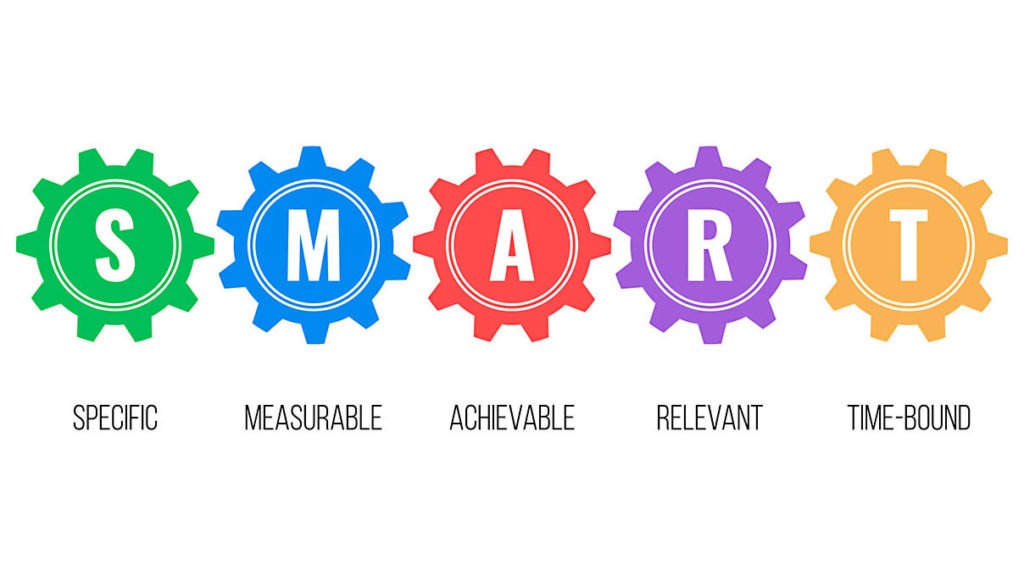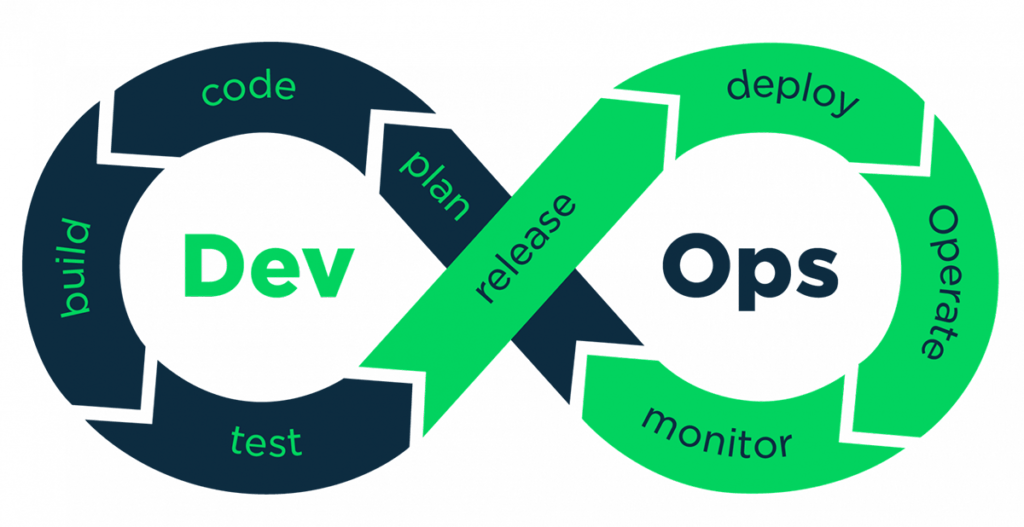
- Developer career goals: how to set yours
- Check if your developer career goals are achievable
- Is the developer profession dead after 40?
- What are examples of professional development opportunities for computer engineers?
- What are the main key areas of development for programmers?
- What are the main developer career goals for designers?
- What are the main developer career goals for data scientists?
- What are the most important areas of development for IT professionals?
- More Dev Career Articles
As a developer aspiring to grow, you need to set goals that will help you reach the peak of your developer career and derive the best value for the company simultaneously. But how do you set these goals? In this article, we will explain to you how to go about it and ensure you achieve the best in your career.
Developer career goals: how to set yours
Career development goals determine the success you will achieve in your career. They help you devise methods to improve your skills as a developer and gain more experience to be a CTO. Before you set your career goals, you need to understand what you want for the next step in your career.
You can come up with a project idea but how you plan to do the project to complete it is what matters. For instance, when developing an application, you can start by simply creating a static page with links to your favorite website, reading, and learning only what is necessary to complete the project. You can then tackle the next task of talking to a third-party application programming interface (API). The following are tips on how to set your goals accordingly.
Ensure the goals you set are S.M.A.R.T.

Setting SMART goals means that they must be:
- Specific
- Measurable
- Attainable
- Relevant
- Timely
Have a personal brand
When setting your goals, make yourself stand out by building a personal brand. A strong personal brand not only attracts opportunities but also makes tech companies come to you, rather than the other way around. As a developer, your personal brand allows you to showcase your expertise, share knowledge, and contribute value to the tech community—without the need to actively “sell” yourself.
Engaging with the tech community is a key part of building your brand. Participate in discussions, attend meetups, and contribute to open-source projects to expand your network and credibility. Contributing to open-source projects, and creating content as blog posts, tutorials, or videos, is another powerful way to share your knowledge and position yourself as a thought leader. By giving back to the community and providing valuable insights, you’ll build a reputation that attracts opportunities, fosters meaningful connections, and helps you grow both personally and professionally.
Develop a technical blog
You can have a technical blog where you teach other developers how to code, debug, and optimize. You can be active and involved in industry conferences and meetups. There are many platforms in the world and what you need to do is choose the ones that align with your career goals and pursue them. You can be a speaker at those events instead of just coding most of your time. It helps you build your network and develop interpersonal skills.
Find your best team fit
Technical talent alone doesn’t offer satisfaction within a team, and other qualities are needed. Finding the best team that has the same professional goals as yours is essential in achieving your goals. You need to have chemistry, trust, conflict resolution and communication to achieve your goals. Research has shown that team cohesiveness has a direct impact on positive job satisfaction. It is good to look at the qualities of the team you want to work with to ensure it’s the best fit.
Make your goals clear
Ensure you make your goals clear to help you work towards achieving them. Instead of I want to learn interpersonal skills, you can set the objective of ensuring that you interact with at least 15 fellow developers every month.
Learn to measure your success
Learn to set milestones in the course of the journey towards the top of your carrier. You can develop the skills and experience you feel will make your developer profession grow. Set measurement as learning and focus on gaining a new skill every month.
Check if your developer career goals are achievable
Once you set your goals, it is essential to check whether your goals are achievable or not.
Which goals to set to get on top of developer career?
The main objective when working as a developer is to be productive and deliver value to the company. As a developer or a CTO, the aim is to build practical applications that will be 100% successful. To achieve this, specific goals need to be set, which include:
- Enhancing your networking skills
- Completing a professional certificate or degree
- Developing good communication skills
- Learning how other departments function
- Improving performance metrics
- Asking for feedback
- Learning in-demand skills to increase professional opportunities
- Become better in time management by tracking your time
- Working effectively in a team
Is the developer profession dead after 40?
There are career motivational phrases that say mistakes make you grow or never be afraid to fail. However, the idea of committing a mistake in the developer profession is not advisable. It is essential to learn from others experience to avoid costly errors that can make you be stuck with one job for too long.
Failing to capture the right qualities can make you fail to get to where you would want by age 40. For instance, failing to switch to different programming languages that you end up not having the right skills needed by employers should raise red flags.
What are examples of professional development opportunities for computer engineers?
It is good we first understand what professional development opportunities are. They are careers vacancies that computer engineers can specialise in. They include:
- Software application developer
- Database administrator
- Web developer
- Computer systems engineer
- Computer programmer
- Software quality assurance engineer
- Computer systems analyst
- Business intelligence analyst
What are the main key areas of development for programmers?
The main areas that programmers should aim to develop are:
- Mathematical aptitude
- Organisational and time management skills
- Problem-solving skills
- Programming languages
- Each role of a developer requires a different language.
- Attention to details and accuracy
What are the main developer career goals for designers?
Designers have the following areas that they need to perfect:
Learn UX design
The design industry continues to become more focused on digital, and this makes user experience (UX) to be emphasized more. Nowadays, it is essential to design products that people can interact with and also employers are looking for designers who can achieve this.
Also, data has become central to many products, requiring people with user interface design skills to be sought after. Designers, therefore, need to make products that customers can use easily. UX designer ensures that the other person enjoys the end product both visually and cognitively. They remove any obstacles that may hinder the smooth experience of the product. UX design mainly concentrates with human behavior, unlike graphic design or web design.
Time management
Time management skills are essential in design. Even if you create a world-class design work and you fail to deliver it within the agreed timeline, it is of no use. Therefore, ensuring that your time management skills are excellent is essential in advancing in your career. Ensuring that you can meet deadlines and developing clear systems to keep you on track is critical to achieving a good work ethic and succeeding in a design career.
Problem-solving skills
Problem-solving skills are essential in designing and honing them helps us understand critical aspects in the course of the job. Such expertise helps you to think expansively and solve problems in a way that don’t raise questions afterwards.
What are the main developer career goals for data scientists?

Programming Skills
Data scientists need to have excellent statistical programming skills in programming languages such as R or Python or a database querying language like SQL. This is one of the tools of the trade that you’re required to use as a data scientist. Being updated on the latest frameworks is also essential.
Statistics
For data scientists, a good understanding of statistics is essential. It will help you in understanding different techniques and using valid approaches to challenges in the workplace. Being familiar with statistical tests, distributions etc. will help you in making decisions and evaluating different designs that work.
Machine learning
Companies with very vast amounts of data such as Google require data scientists to be familiar with machine learning methods. Such methods include ensemble methods, k-nearest neighbors, random forests, and many more. Having machine learning skills helps you to understand when it is appropriate to use the various techniques.
Multivariable Calculus & Linear Algebra
Having multivariable calculus and linear algebra skills is essential in companies where the product is defined by the data and where algorithm optimization leads to huge wins for the organization. Knowing these techniques is crucial as they help you build own implementations of data in house.
Data wrangling
Data wrangling skills helps you analyze messy data. Sometimes there are imperfections in data and data wrangling enables you to identify how to solve problems in data with inconsistent string formatting or missing values.
Data visualisation and communication
It is important to visualize data and be able to make data-driven decisions. It is good to be able to communicate data by describing your findings and using data visualization tools like matplotlib or d3.js. Being able to use the tools effectively and know the principles behind visually encoding data and communicating information is crucial for a data scientist.
What are the most important areas of development for IT professionals?
Having clearly stated goals as an IT professional that you would like to achieve in your career is essential. Whether you are an upcoming IT professional or a CTO, it is vital to have a clear vision of where you want to be in the future in terms of skills advancement. Below are some of the critical areas of development you should consider:
Adaptability
Company restructuring, financial setbacks or change in leadership can change the scope of a project and change its progression. No brainstorming or planning can anticipate some of these changes and therefore, being able to adapt to these changes is a skill that is very much needed. Being able to adapt to the changes and still delivering on the project deadline and deliverables is a critical skill. IT professionals who can quickly adapt to the changing scope are more productive and efficient; hence adaptability is essential.
Accepting constructive feedback
Getting constructive feedback is essential in correcting behaviors and promoting good working relations. Professionals need to learn to accept valuable feedback and resolve any conflict or challenges encountered in the workplace.
You can encourage the organization to foster a culture of giving suggestions on improvements that need to be made.
Communication
Enhancing communication in the organization is essential because people are from different backgrounds. Due to this diversity, communicating effectively and be beneficial to the project as each person’s views are taken into consideration. Also, recognizing other people’s communication preferences is an excellent way of building positive relationships and fostering teamwork.
Should you learn DevRel?
In the developer profession, DevRel is very important to learn. It merely means Developer Relations, and just like public relations, it’s a policy that prioritizes having good working relationships with other developers. DevRel is a technique that ensures that a company’s products and developers build a good relationship with other external developers through cooperation and communication.
Learning DevRel helps establish a trustworthy relationship within the developer profession, and through DevRel, everyone has peace of mind about the products one uses.
Should you learn DevOps?
DevOps involves the cultural transformation of an IT company. DevOps offers new dimensions of developing and delivering software through collaboration among the developers and operations.

DevOps helps in building integration, collaboration and communication between developers and information operation personnel. Learning DevOps helps reduce the time for cycles of development and ensures a faster rate of innovation. It enables both the development and operations teams to collaborate and ensure product quality is excellent. DevOps do not allow mistakes in the stage of methodology and thus allows improved product qualities.
DevOps helps eliminate bad developers
In the developer profession, there are those developers that are excellent, average, and others poor. The wrong codes generated by bad developers must be eliminated, or it will slow down the process of development. DevOps helps in reducing bad code limits since the bad codes are not permitted to go to the next level until they are revised and corrected.
When setting goals for your career development, it is good to consider your interests and set goals that are in line with your interests and which help enhance your skills as a developer. You can subscribe to our mailing list and get weekly updates, tips, and articles on how to get to the top of your career.
More Dev Career Articles
Are you a Soft Skilled Developer?
It’s not just code: key skills for senior devs
How to find a tech job abroad
8 Tips from IT recruiters for your Tech Interview


